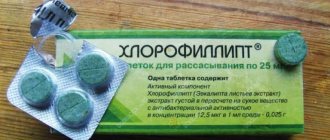For tonsillitis
Tonsillitis is a disease in which the tonsils become inflamed. The acute form of tonsillitis is often called tonsillitis. Symptoms of this disease include severe pain when swallowing, dryness and soreness. To overcome these unpleasant symptoms, herbs can be used in conjunction with the general course of therapy. To do this, you need to prepare a warm infusion of herbs to gargle with a sore throat.
Herbal collection No. 1
To make it, you need to take one heaped teaspoon of calendula and the same amount of plantain. Dry herbs are poured with one glass of boiling water. Let the product brew for 1 hour, strain well. If desired, you can add a small amount of wormwood to the tincture. In this case, all ingredients should be taken in equal proportions. However, not everyone is able to withstand such a collection of herbs for gargling, since wormwood has a bitter taste. And if this herb causes vomiting or coughing, then it is best not to use this component in the recipe. When rinsing, it is important not to harm the diseased areas.
Treatment of pharyngitis
- inflammation in the mucous glands of the throat. Most often it occurs after a person has had diseases of the respiratory system. People called this disease “red throat.” The causative agent can be not only a virus, but also streptococcal pathogens.
Important! The disease must be treated. Treatment is carried out using herbs.
Take equal parts of the herb:
- meadow trefoil;
- wild rose;
- hawthorn fruit;
- woolly birch;
- plantain;
- indoor geranium;
- successions.
Mix everything and grind in a mortar. Take about two large spoons of the mixture and cover with water brought to a boil. Leave for 12 hours. Filter. Drinking half a mug three times a day is also necessary to gargle with medicine for a sore throat.
Take equal parts of the herb:
- medicinal marigolds;
- tansy;
- meadowsweet flowers;
- chicory;
- aspen buds.
Mix everything and grind in a mortar. Take about two large spoons of the mixture and cover with water brought to a boil. Leave for 12 hours. Filter. Drink half a mug three times a day.
Herbal tea No. 2
What other herbs can be used to gargle? Linden and chamomile flowers can also be used to treat tonsillitis. To prepare the decoction you need to take 1 part chamomile flowers and 2 parts linden. A mixture of dry herbs is taken in the amount of one tablespoon, poured with one glass of boiling water. The herbs must be infused for at least 20 minutes, after which the infusion can be used. However, it is worth paying attention to the fact that those people who are prone to an allergic reaction should refuse to use any decoctions and infusions that use flowers.
General rules for working with herbs - how not to cause harm
You need to gargle with herbs not only regularly, but also correctly, and for this you need to follow simple tips:
- Do not rinse with too hot infusion. All herbs are brewed with boiling water and must be cooled before use. You can just wait, you can put it in a cool place. But this should not be neglected, otherwise you can get a thermal burn of the mucous membranes and have to treat it.
- Filter infusions before use. Small particles of grass can be a choking hazard; they can settle on the mucous membrane and irritate it. Therefore, before rinsing, any infusion should be filtered through gauze.
- Do not rinse too often. Herbs always have the most gentle effect, so gargling with them less than five times a day is simply pointless - there will be no effect. Ideally, the procedure should be carried out every hour.
- Use each infusion immediately after preparation. The shelf life of any infusion is two to three days, no longer. It is also not recommended to keep them in the refrigerator, since cold destroys the beneficial substances.
- Some herbs can be used instead of tea - this will enhance the effect of rinsing. It is good to drink chamomile and sage. To improve the taste, you can add honey, mint, lemon balm.
- Before using a new herb, perform an allergy test. The simplest way to do this is to brew a strong infusion and apply it to the thin skin on the bend of the elbow. If redness and itching appear, use another product.
Herbal decoctions, despite their gentle effect, have contraindications. Before preparing them, you should familiarize yourself with the list.
For pharyngitis and laryngitis
Laryngitis is an inflammation of the larynx. In addition to severe pain and other unpleasant symptoms, partial or complete loss of voice may occur. Pharyngitis is a disease in which the soft palate becomes inflamed. To cure these diseases, you can use various herbal gargles. There are several effective recipes to consider.
Recipe No. 1
To alleviate the condition, you can prepare a mixture of violets, leaves and stems of a tricolor series, and calendula flowers. It will take 3:1:2 parts respectively. You can also prepare a mixture of string grass, tansy flowers and oregano in a ratio of 3:1:1. Both rinsing decoctions are prepared according to the same procedure. Take one spoon of the prepared mixture and pour one glass of boiling water. The infusion should stand for at least 20 minutes. This remedy is used to treat laryngitis. In addition, these herbs are used to gargle for colds.
Herbs against inflammation
Acute and chronic tonsillitis and pharyngitis, in addition to antiseptics, require taking anti-inflammatory drugs. They relieve inflammation of the pharyngeal mucosa and eliminate symptoms of general intoxication, that is, they lower body temperature, reduce headaches and sore throats, and increase performance. Decoctions of linden flowers, black elderberry, tripartite herb, willow bark, raspberry leaves and fruits can serve as anti-inflammatory drugs. It is advisable to take such decoctions orally in small portions of several sips every hour in order to irrigate the pharyngeal mucosa.
The listed plants, in addition to their anti-inflammatory properties, cause profuse sweating, as they contain natural salicylic acid. Together with sweat, toxins are removed from the body, it is cleansed and restored.
Useful information: Falimint tablets - instructions, features of use, comparison with the drug Strepsils
General recommendations when rinsing
If it happens that your home medicine cabinet does not contain all the herbs that are part of a particular recipe, then you should not be upset. An infusion even based on a single plant can be used for gargling purposes. You just need to remember that the flowers of elderberry, linden, St. John's wort, chamomile and calendula are most often used to make a decoction and infusion for rinsing. Leaves or stems are taken from plantain, sage, string, eucalyptus or oregano. The seeds are used from fennel, the bark is taken from oak, and the rhizomes are used from marshmallow.
The most common gargles are water infusions based on several or one plant. An infusion differs from decoctions in that the flowers or herbs are poured with boiling water and are not boiled over a fire. In most cases, to prepare the infusion, take a couple of teaspoons of dry herbs, as well as one glass of boiling water. The exception includes only those plants that contain a huge amount of essential oils. This includes eucalyptus. It is diluted in the amount of 1 teaspoon per 200 ml of boiling water.
Decoctions are best made from the denser parts of dry plants. For example, rhizomes or bark are ideal. But if instead of an infusion you make a decoction for rinsing, then this will not be critical.
The throat should be gargled only with warm mixtures. It is advisable that the temperature of the liquid be a couple of degrees higher than body temperature. Thus, the optimal temperature of the infusion or decoction for rinsing should be within 38 degrees.
If the drink is too cold or hot, it will do more harm than good.
The frequency of rinsing will depend on your overall health, as well as how quickly painful symptoms can disappear. There is no need to overdo it with the use of decoctions and infusions. You also need to be careful not to harm your already damaged throat. When gargling with a sore throat, there is no need to make sounds or gurgles. The more severely the throat is affected, the more carefully it is necessary to rinse it in terms of mechanical impact.
However, in this case it will be necessary to increase the frequency of rinsing. During a sore throat, you should gargle every 2 hours for 2 minutes. For less acute illnesses, 3 rinses per day will be enough. However, their duration must be at least 5 minutes. In addition, you should pay attention to the fact that under no circumstances should you eat immediately after such a procedure.
If we consider herbs for gargling, children can use chamomile flowers, oak bark, sage flowers, St. John's wort, calendula, linden, elderberry. However, before starting treatment for your child, it is best to consult a specialist to avoid possible side effects.
LiveInternetLiveInternet
Quote from Konstancia's message
Read in full In your quotation book or community!
The most powerful natural antiseptics
A list of plants that have the most powerful antimicrobial effect. Plant antibiotics are usually called phytoncides. These are special volatile substances and juices produced by plants. They have the ability to destroy bacteria, viruses, fungi and protozoan microorganisms. Plants rich in phytoncides are successfully used in the treatment and prevention of many viral infections. The death of microorganisms from the action of plant antibiotics occurs very quickly. So, for example, within a few minutes the volatile substances of a bird cherry branch kill bacteria in a glass of water standing nearby.
Which plants have the most powerful antimicrobial effect?
– The most famous herbal antiseptics for treating colds include wild rosemary, calendula, elecampane, juniper, pine buds, thyme, oregano, sage, echinacea and eucalyptus. Food products include garlic, onions, horseradish, red capsicum and black radish.
For kidney diseases, preference is given to those plants whose phytoncides are excreted in the urine. These include lingonberry, birch, elecampane, kidney tea, eucalyptus, cornflower, bearberry and St. John's wort.
St. John's wort, chamomile, plantain, cinquefoil erecta, sage, caraway, wormwood and yarrow have the best effect on the gastrointestinal tract. Among the vegetables recommended for intestinal diseases are radishes, radishes, onions, garlic, horseradish, carrots, and celery.
Of the fruits and berries, citrus fruits, raspberries, strawberries, black currants, chokeberries, pomegranate, cranberries and lingonberries have the greatest antimicrobial activity. Spices are also rich in antibacterial substances: cloves, cinnamon, basil, thyme, marjoram and bay leaf. Cranberries and lingonberries have unique phytoncidal properties. These berries contain benzoic acid, which when excreted in urine inhibits the growth of microorganisms.
For skin diseases, external use of celandine, calendula, sage, eucalyptus, St. John's wort, bergenia and oregano is usually recommended.
The most potent natural antibiotics that you can prepare yourself include 40% alcohol extracts from garlic and onions, as well as an alcohol tincture from calendula flower baskets.
To disinfect the premises
Around the perimeter of the house you can hang bouquets of dried plants (lavender, savory, cistus (labdanum), myrrh, opoponax (sweet myrrh)), use scented balls, fumigate the premises with incense, styrax, galbanum, mint twigs of pine, spruce and juniper
https://veritas.blogshare.ru/topics/20101210-samyie...ie-prirodnyie-antiseptiki.html










